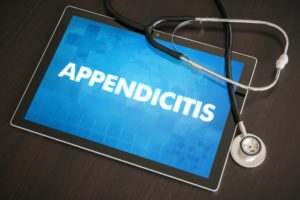 Whether watching a scene in a movie or on a television show or witnessing it happen in person, we have all seen someone faint, but do we really know what it is or what causes someone to do it?
Whether watching a scene in a movie or on a television show or witnessing it happen in person, we have all seen someone faint, but do we really know what it is or what causes someone to do it?
Fainting, also called syncope (pronounced SIN-ko-pee), is a sudden, brief loss of consciousness and posture caused by decreased blood flow to the brain.
There are many different conditions that can cause someone to faint, including having an irregular heartbeat or low blood sugar. It can also be due to a condition called anemia, which is a deficiency in healthy oxygen-carrying cells or problems with the nervous system. Anxiety, stress, hunger, dehydration or the use of alcohol or drugs can all lead to a fainting spell. In some cases, fainting runs in families.
While fainting may indicate a particular medical condition, sometimes it may occur in an otherwise healthy individual. In fact, most people who faint have no underlying heart or neurological problem. A simple fainting episode also called a vasovagal attack, is the most common type of fainting spell and is most common in children and young adults.
Typically, before someone faints, they will begin to feel a rush of warmth through their body, followed by a sensation of weakness or lightheadedness before going limp and passing out. The person may also break out in a cold sweat or experience nausea. In most cases, the individual who has fainted regains complete consciousness within just a few minutes.
Management of fainting is simple: Allow the person to recover while lying flat and elevate their legs to allow blood to flow to the brain. Drinking fruit juice after regaining consciousness can also be helpful, especially if the episode was due to low blood sugar. If the patient doesn’t regain consciousness quickly, dial 911.
See a health care provider immediately if a person fainted hit their head, if they have fainted more than once in a month; if they are experiencing unusual symptoms such as chest pain, shortness of breath, blurred vision or difficulty speaking; or if they are pregnant or have another serious condition. A doctor can help determine the cause and possibly address the underlying issue.
To schedule an appointment with a doctor at Flushing Hospital Medical Center, please call 718-670-5486.
All content of this newsletter is intended for general information purposes only and is not intended or implied to be a substitute for professional medical advice, diagnosis or treatment. Please consult a medical professional before adopting any of the suggestions on this page. You must never disregard professional medical advice or delay seeking medical treatment based upon any content of this newsletter. PROMPTLY CONSULT YOUR PHYSICIAN OR CALL 911 IF YOU BELIEVE YOU HAVE A MEDICAL EMERGENCY.



